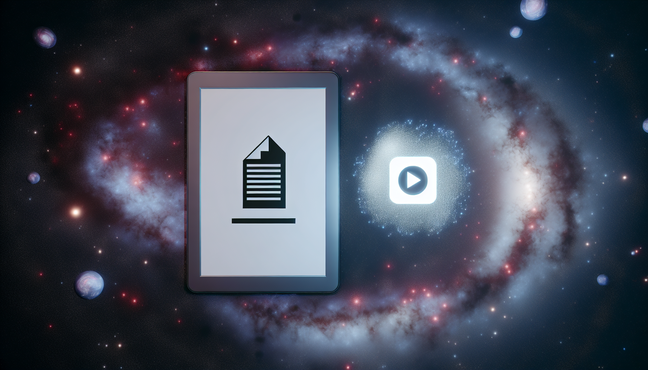Introduction to GPA Certificates
A GPA (Grade Point Average) certificate is an official document that summarizes a student’s academic performance in terms of their GPA, which typically represents a student’s average scores over a specific period, such as a semester or entire academic program. This certificate serves as a critical component for various academic and professional pursuits, such as applying for higher education, scholarships, or jobs. The significance of possessing a GPA certificate lies in its ability to validate a student’s achievements and reflect their academic capabilities. For prospective employers or educational institutions, a GPA certificate offers key insights into a candidate’s commitment, knowledge, and suitability for a program or position. Therefore, maintaining a high GPA can enhance one’s competitiveness in both academic and job applications. For more details about GPA and its importance, check out the GPA Calculator.
Preparing for the Download
To download your GPA certificate, you’ll need to be prepared with specific documents and information. Here’s a breakdown of the essential requirements:
- Identification Documents: Typically, you’ll need a government-issued ID, such as a passport or driver’s license, to verify your identity when accessing your GPA certificate.
- Student Identification Number: This is often required for verification purposes. Ensure you have your student ID number readily available.
- Program Information: Be prepared to provide information regarding the program you were enrolled in, including the program name and dates of attendance, as this may be required to locate your records.
- Payment Information: In some cases, there may be a fee to obtain your GPA certificate. Have your credit/debit card ready or check if there are other payment methods available.
- Access to Online Portals: Depending on your academic institution, you may need to log into a specific online platform where GPA certificates can be downloaded. Make sure you know your login credentials, as you will need them to access your records.
- Contact Information: If you encounter any issues during the download process, having contact information for the registrar’s office or student services can be beneficial.
Before you start, verify with your educational institution to ensure you have all required documentation and follow any specific instructions they provide.
Step-by-Step Instructions for Downloading
Follow these simple steps to download your GPA certificate:
- Log Into Your University Portal: Visit your university’s official website and log into the student portal using your credentials.
- Navigate to Academic Records: Once logged in, locate the section labeled “Academic Records” or “Student Records” within the portal.
- Select GPA Certificate Option: Find the option that states “Request GPA Certificate” or “Print GPA Certificate” in the records menu.
- Fill Out Necessary Information: Enter any required personal information to authenticate your identity, such as your student ID, date of birth, or program of study.
- Verification Process: Some institutions may require verification of your identity through email or SMS. Follow the prompts to complete this step.
- Download the Certificate: After your request is processed, a PDF link to your GPA certificate should appear. Click on it to open and download the certificate.
- Save and Print: Once downloaded, save the file on your device and print it if a hard copy is required.
For further information on GPA calculation and academic resources, visit our GPA Calculator page.
Common Issues and Troubleshooting Tips
When downloading files, users may encounter several common issues, including slow download speeds, failed downloads, or file corruption. Understanding these problems can help users troubleshoot effectively.
- Slow Download Speeds: This can be caused by several factors such as internet connection instability, network congestion, or even the limitations of the server hosting the file. To improve speed, ensure a stable internet connection, pause other downloads, and try downloading during off-peak hours.
- Failed Downloads: If a download fails, it may be due to network interruptions or server issues. It’s advisable to check your internet connection and retry the download. If the problem persists, consider using a download manager, which can handle interruptions and resume downloads.
- File Corruption: Sometimes, files may get corrupted during downloading. This can happen due to unstable connections or improperly terminated downloads. Ensure that your connection is stable, and consider downloading files in smaller segments if possible. Additionally, verify the integrity of downloaded files by checking file sizes or running checksums.
Troubleshooting Tips:
- Clear Browser Cache: A full cache can slow down the download process. Regularly clearing your browser’s cache can speed up downloads.
- Use Wired Connections: Whenever possible, use a wired connection rather than Wi-Fi, as this can provide more stable speeds.
- Disable VPNs or Firewalls Temporarily: These can sometimes interfere with downloads. Disabling them temporarily can help diagnose the issue.
- Check for Software Updates: Ensure that your browser or download manager is updated, as updates can fix known bugs affecting downloads.
For more detailed information, explore our article on troubleshooting file download issues to enhance your understanding of handling downloads effectively.
Useful Resources and Links
Explore the following useful resources to assist you in calculating your GPA and managing your academic performance:
- GPA Calculator: This online tool simplifies the process of calculating your GPA based on your grades.
- College Board: The College Board provides a range of information on GPA guidelines, college admissions, and preparation resources that can be invaluable for students.
- Khan Academy: Not only does Khan Academy offer tutorials on various subjects, but they also provide resources on academic success strategies, including GPA management and study techniques.
- Chegg: Chegg features various tools including textbook rentals and homework help, which can ease your academic load and contribute positively to your GPA.
- Academic Earth: This platform provides free online college courses from various universities, which can help enhance your knowledge and skills, potentially improving your grades and GPA.
Using these resources can help you not only calculate your GPA but also improve your overall academic experience.










